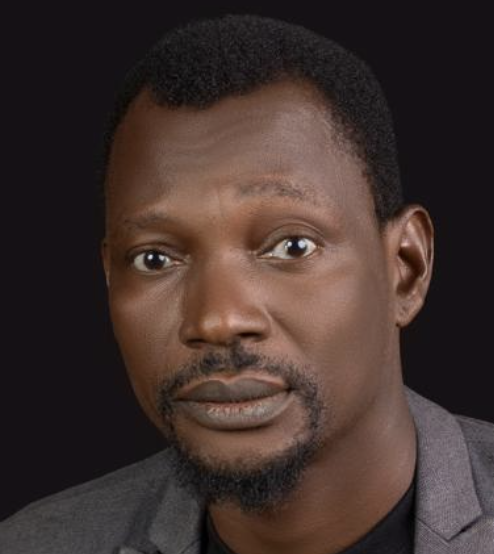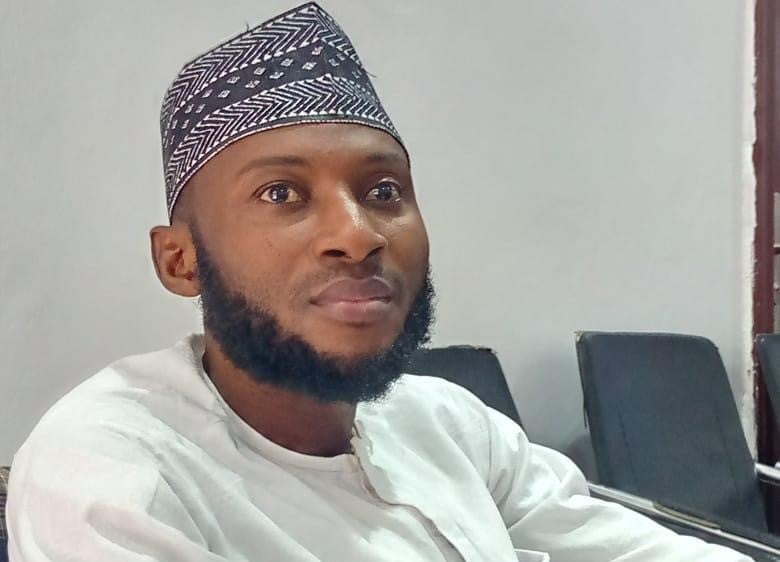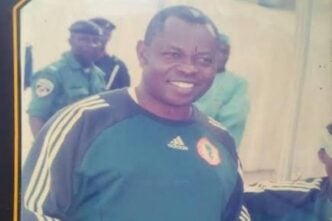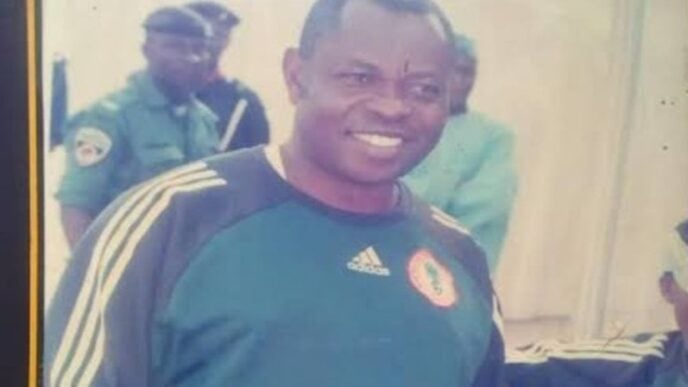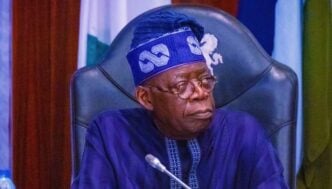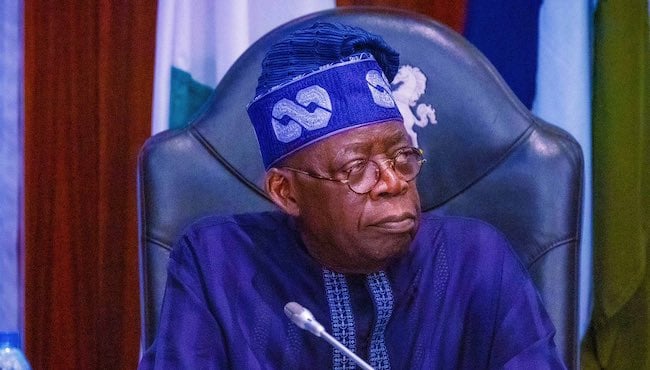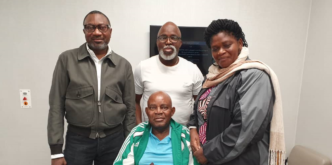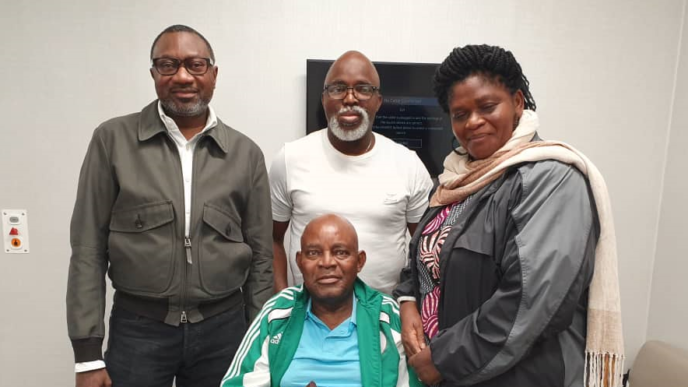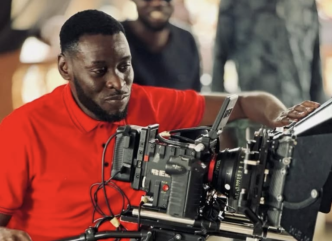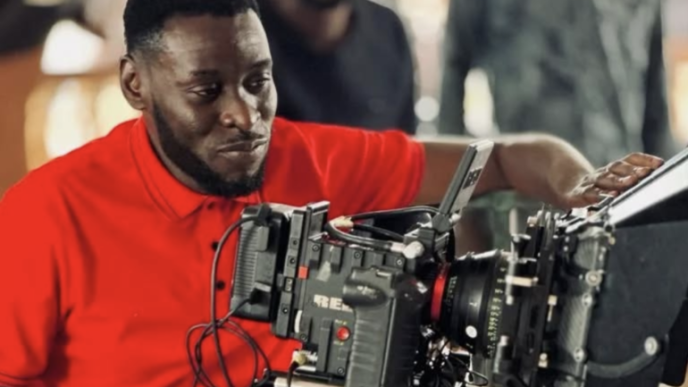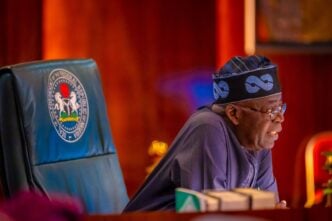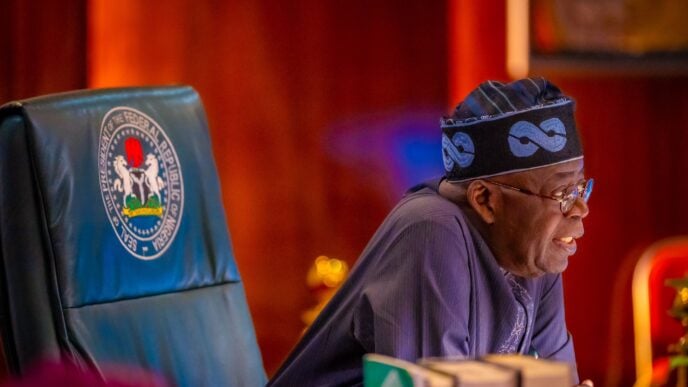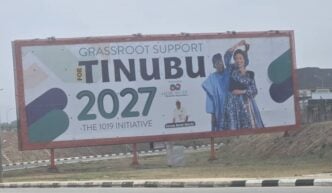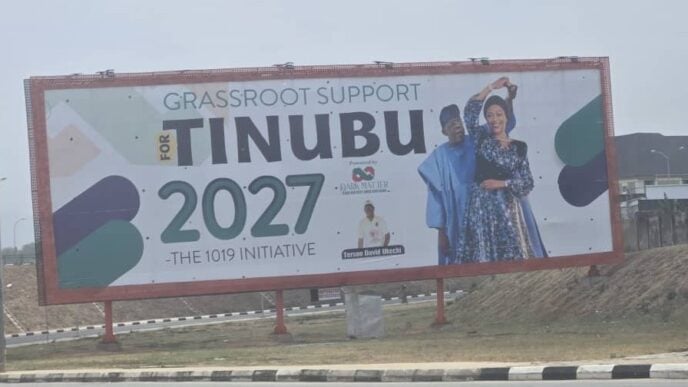Saleh Badeh Ken is a disability advocate, lecturer, politician, and executive chairman of the Nasarawa State Disability Commission. He was appointed as the chairman on March 18, 2024.
In this interview with TheCable’s YEMI MICHAEL, Ken shared his thoughts on the challenges people with disabilities (PWDs) are facing, what the commission has done so far, its challenges, and other salient issues.
TheCable: What are the most significant challenges PWDs face in your state, and how is the commission addressing them?
Ken: First, I want to thank Abdullahi Sule, our leader and my governor, a beacon of inclusiveness, for his tireless efforts to enhance the lives of people with special needs through enactment of laws and legislation that will promote inclusion and participation of our people, prominent among which is the domestication of the Discrimination Against Persons With Disabilities Prohibition Law, which saw the establishment of the Nasarawa State Disability Rights Commission and the subsequent appointment of an executive chairman and four members of the commission.
Advertisement
I will say without equivocation that the most significant challenge faced by PWDs in the state is access to public institutions. PWDs are finding it extremely difficult to go to public places like banks and hospitals because the buildings are largely inaccessible. So, there is a complete issue of noncompliance with accessibility regulations.
We are also confronted with the challenge of a paucity of funds. Funding is the big issue. There is inadequate funding to run the commission and cater to the needs of PWDs. The government is doing a lot, but it cannot do it all alone.
Another challenge is the lack of partnership with private organisations. We don’t have strong organisations here that will support us. Efforts are ongoing to partner with organisations like SightSavers and Rolac to support our people in the state and complement the effort of the governor.
Advertisement
Our office is in bad shape. It needs urgent renovation or a total overhaul. The whole structure is dilapidated.
The offices are not enough and cannot contain the staff. You will see two directors sharing one office. Our board members also experience this. It’s bad. But I think the governor may relocate us to another place because there will be spaces when the new secretariat is completed as some ministries will be moved to another place.
Another major challenge we have is inadequate vehicles for official functions, as the commission is left with a bus that cannot navigate remote areas. Even as the chairman, I don’t have an official vehicle.
I believe these challenges can be addressed with certain actions. There is a need for individuals and NGOs to partner with us and assist the commission.
Advertisement
The state government and other disability stakeholders can and should please support us by helping to create more awareness campaigns and increase funding so that we can do laudable projects in different aspects of life, such as health, education, social welfare, and others.
This will give PWDs a sense of belonging and foster understanding. It will also let the public know that the government is committed to improving the lives of PWDs in the state.
We intend to address the myriad of challenges through continued sensitisation and seeking partnership with the government and NGOs.
TheCable: What are the key achievements of the commission in promoting the rights and inclusion of PWDs in the state?
Advertisement
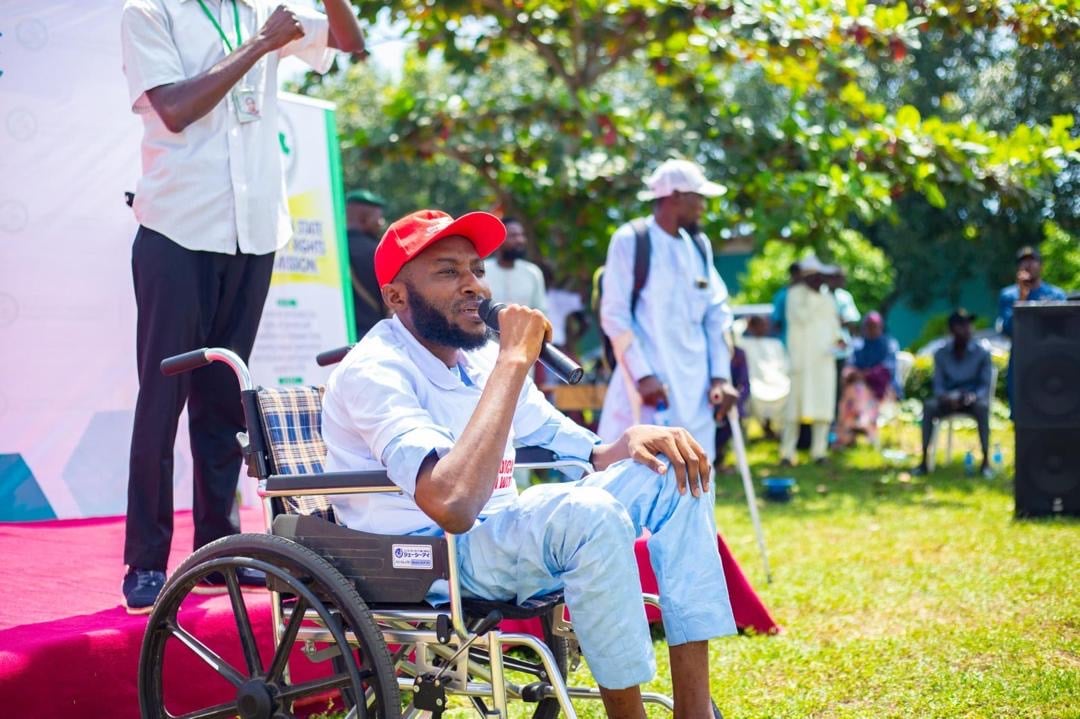
Ken: The key achievements of the commission under my leadership in promoting the rights of PWDs include constant advocacy visits to agencies and parastatals to advocate for the inclusion of our people in all aspects and their right to employment and education.
We have also improved their welfare through the provision of funds (monthly) to the Joint Association for Persons with Disabilities (JONAPWD) and all five clusters (deaf, persons with mobility issues, people with albinism, people with leprosy, and the visually impaired). It’s on record that Nasarawa is the only state in Nigeria that allocates monthly funds directly from the state coffers to disability associations.
Advertisement
Secondly, one major approach we adopt to help promote the rights of PWDs and enlighten them is consistent media engagement. We appear more often on TV and radio stations to speak about issues affecting us. This is yielding positive results as our people are becoming more enlightened and educated.
TheCable: How does the commission collaborate with government agencies and the private sector to ensure the effective implementation of disability rights policies?
Advertisement
Ken: The collaboration has been good, especially with the Nasarawa government. They have been giving us great support. Most of our requests to the government are approved.
Recently, we got approval to celebrate the 2024 International Day of PWDs, where wheelchairs, white canes for people with visual impairments, items for people with albinism, and other items would be distributed to other PWDs courtesy of the governor, who approved funds for the items to be procured.
Advertisement
For the NGOs, we need more of them to support us. We are trying hard to partner with them. So far, we are collaborating with some notable organisations. Among them is the Haske Children Foundation, which recently organised a free medical outreach for children with disabilities in Lafia.
More efforts are ongoing. I am working with members and management of the commission to ensure sustained collaboration to better the lives of PWDs.
TheCable: What are the commission’s strategies for raising awareness and combating stigma and discrimination against PWDs in the state?
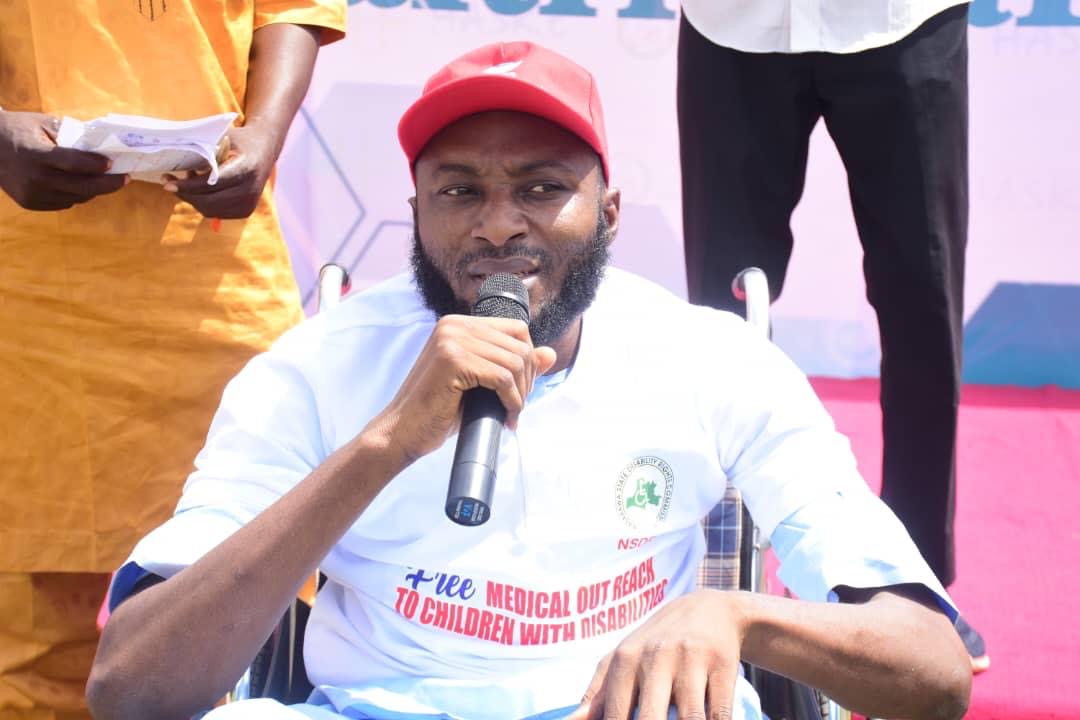
Ken: The strategies we deploy are multifarious. We do this through different media platforms to raise awareness and educate the public on the unique capabilities of PWDs and the danger associated with stigmatisation, especially now that the law stipulates penalties for someone who engages in stigmatisation.
We also engage stakeholders such as traditional leaders, youth associations, schools, and the general public.
We also seize every occasion of international days of PWDs to organise a campaign against discrimination and stigmatisation.
TheCable: How accessible are public services and infrastructure in the state for PWDs? What steps are being taken to improve accessibility?
Ken: Before we came on board, there was a huge challenge of accessibility; even our commission is not accessible.
Though there is improvement through our vigorous campaign and advocacy visits to ministries, departments, and agencies (MDAs), more still needs to be done, as most of the infrastructure is still not accessible.
Efforts are ongoing to ensure and enforce total compliance. Those who fail to comply by the end of this year will face the consequences of their noncompliance.
TheCable: What are the commission’s priorities for 2025, and how do you plan to achieve them?
Ken: Our major priorities are ensuring compliance with accessibility for public institutions and facilities for PWDs and promoting equal rights and opportunities for our disability community.
In addition, we also want to empower PWDs. We will empower them to be self-reliant by providing training in skills acquisition. Those who have already acquired skills will be given a special grant.
We will also seek considerable collaboration with NGOs and well-meaning Nigerians and do awareness campaigns.
TheCable: How does the commission ensure the participation and meaningful inclusion of PWDs in decision-making processes that affect them?
Ken: We will ensure their participation in decision-making by continuously partnering with stakeholders and friends of PWDs in the area of education, employment, and skill acquisition and by ensuring that all the zonal offices in the state are put to proper use.
We will also continue to advocate for true inclusion and political participation and ensure that the five percent employment slots (quota) provided for by the Discrimination against Persons with Disabilities Law, 2019, for PWDs, is adhered to.
The commission will ensure that we are at the forefront of the fight for disability-related issues. As the saying by PWDs goes, “Nothing about us without us”. So, we will be very involved.
TheCable: What role does technology play in the commission’s efforts to empower PWDs?
Ken: Technology plays a vital role in the area of information. For instance, we use social media as a channel of communication or to disseminate information to PWDs. We also use it to provide health, education, transportation services, and assistive devices.
By the way, we also monitor the implementation of disability rights by following daily activities and enforcing the provisions of the law by ensuring that the employment slot of 5% approved by Abdullahi Sule, the state governor, is complied with.
Two of the things we also do are to ensure all students with disabilities attend school free of charge and make sure public buildings are disability-friendly or accessible to PWDs.
